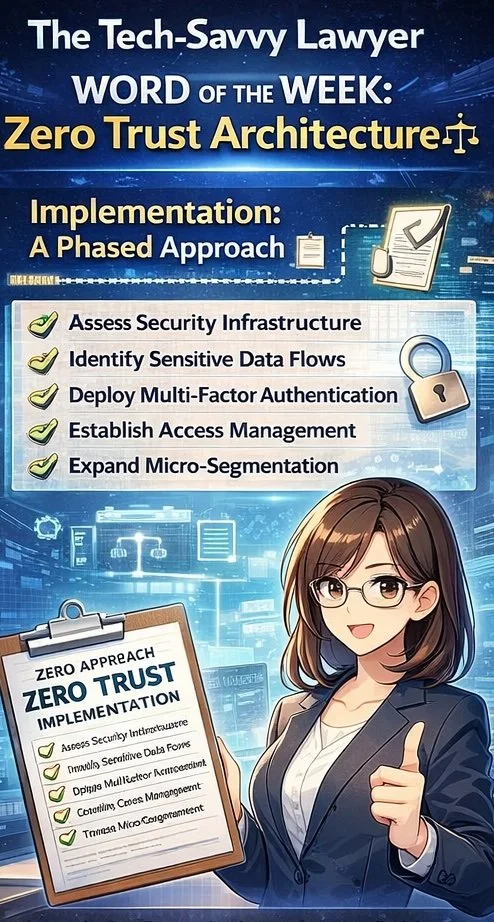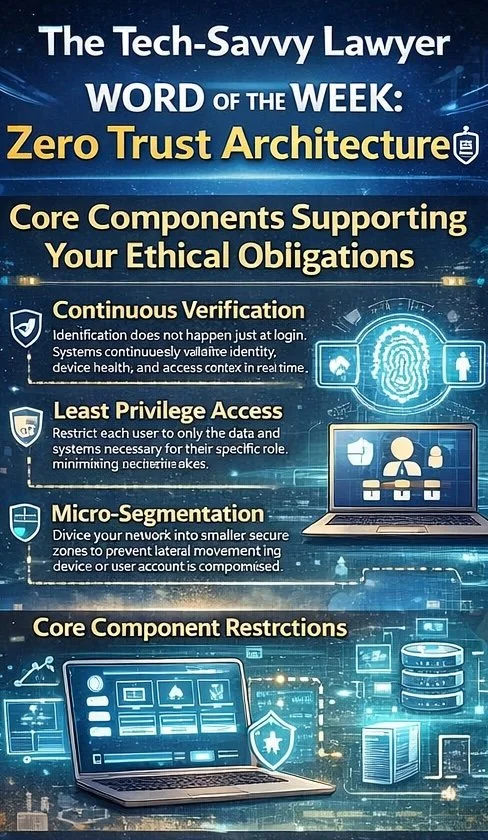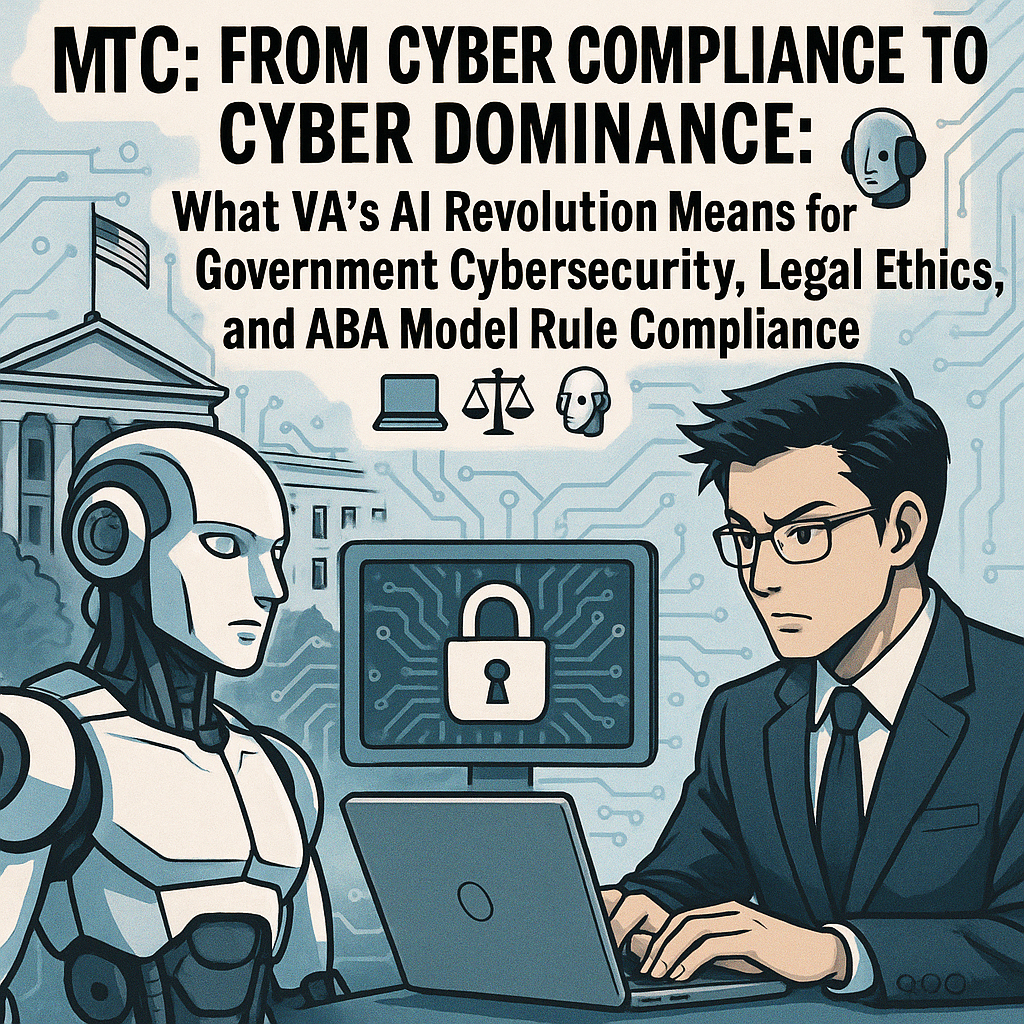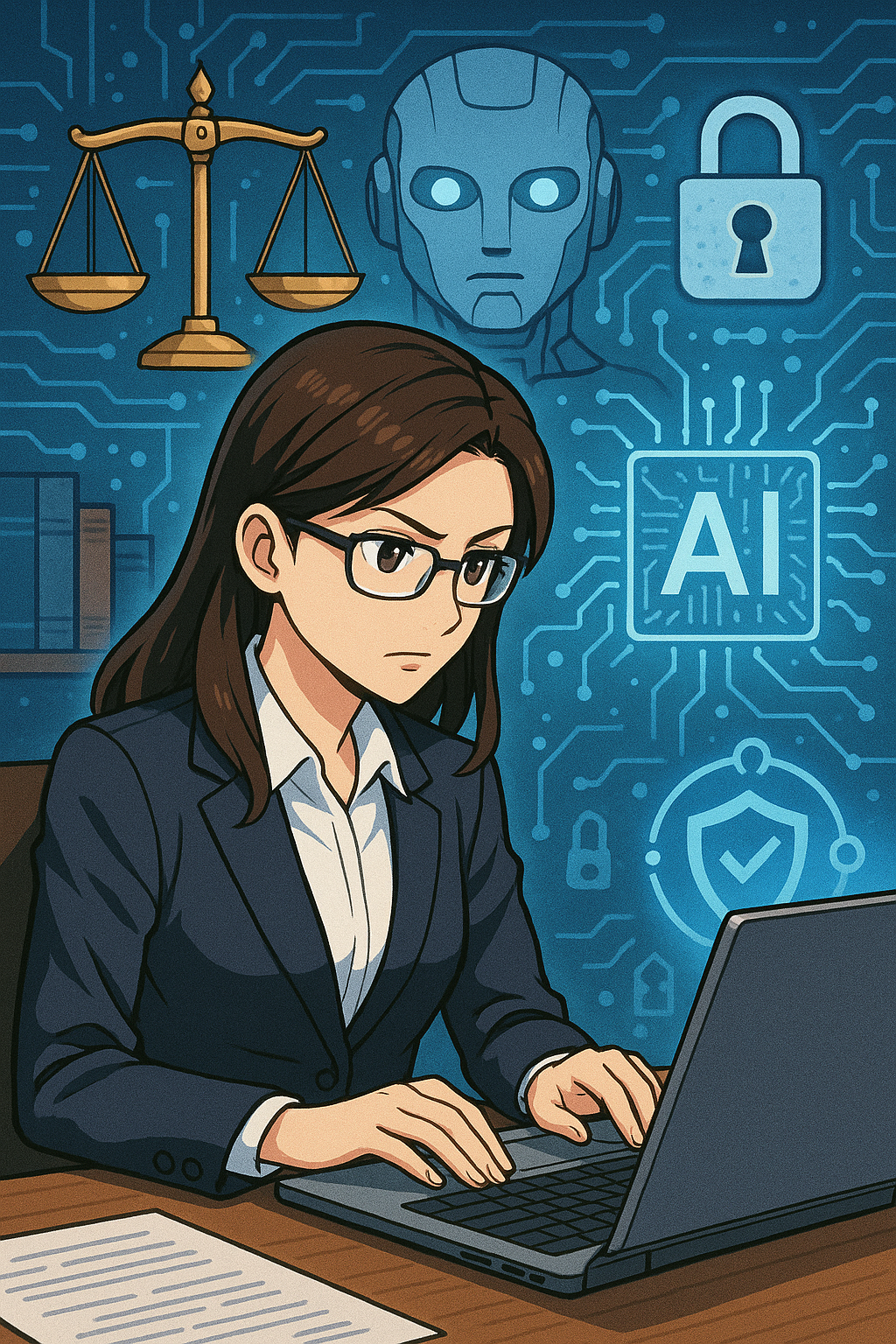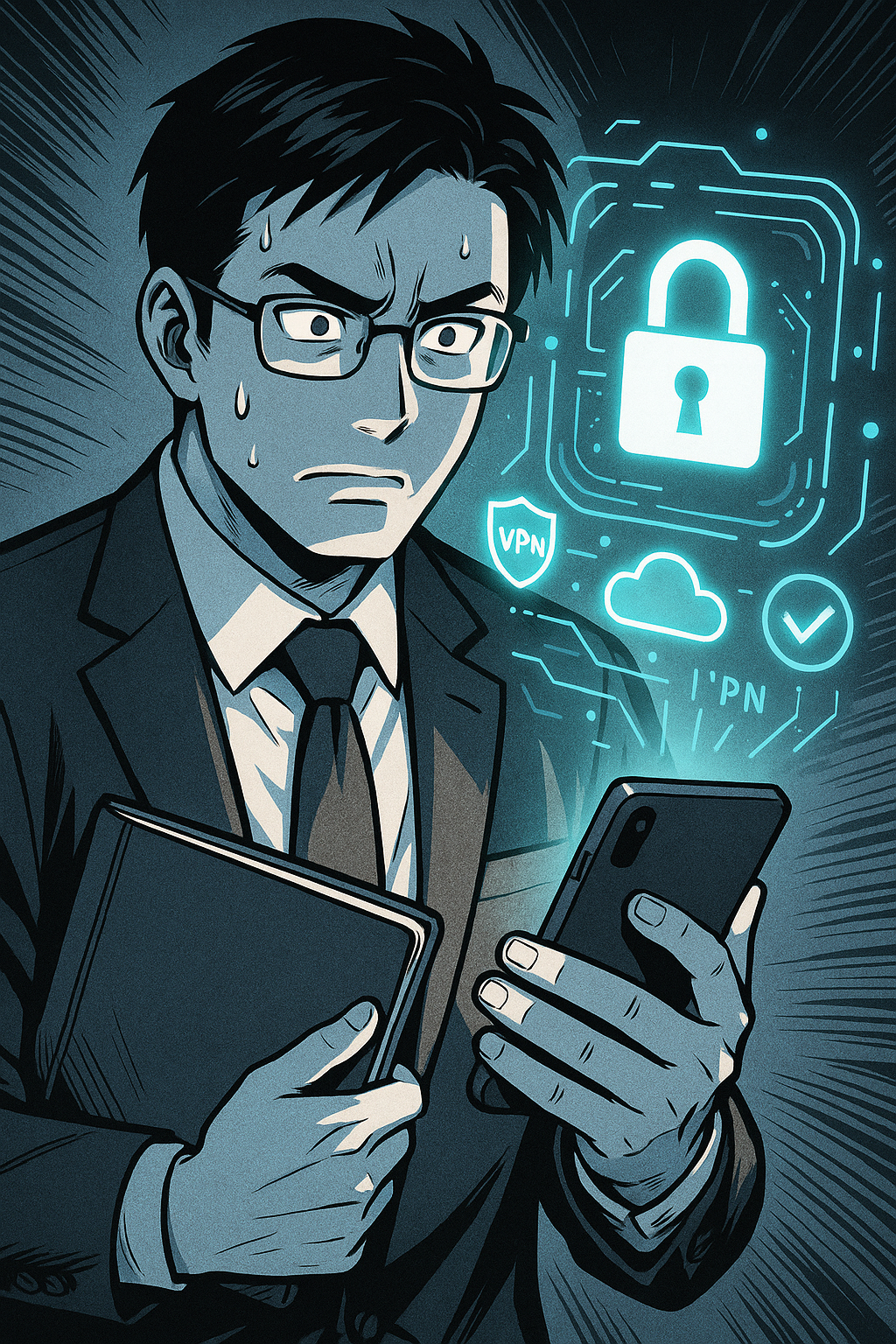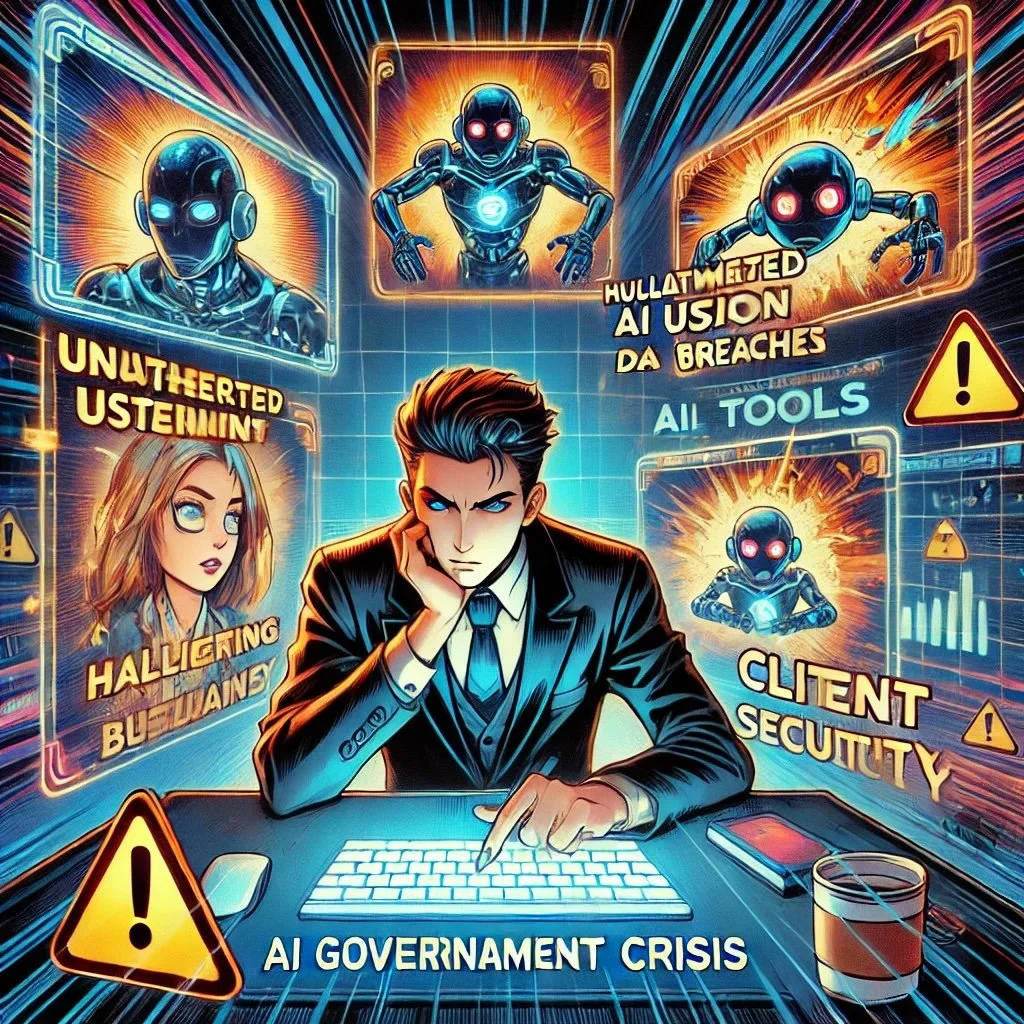📽️ BONUS Labs 🧪 Initiative: Tech-Savvy Lawyer on Law Practice Today Podcast — Essential Trust Account Tips for Solo & Small Law Firms w/ Terrell Turner (Copy)
/For those who prefer video over plain audio, enjoy this take on my guest appearance on Law Practice Today Podcast!
🙏 Special Thanks to Terrell Turner and the ABA for having me on the Law Practice Today Podcast, produced by the Law Practice Division of the American Bar Association. We have an important discussion on trust account management. We cover essential insights on managing trust accounts using online services. This episode has been edited for time, but no information was altered. We are grateful to the ABA and the Law Practice Today Podcast for allowing us to share this valuable conversation with our audience.
🎯 Join Terrell and me as we discuss the following three questions and more!
What precautions should lawyers using online services to manage trust accounts be aware of?
How can solo and small firm attorneys find competent bookkeepers who understand legal trust accounting?
What security measures should attorneys implement when using online payment processors for client funds?
⏱️ In our conversation, we cover the following:
00:00 – Introduction & Preview: Trust Accounts in the Digital Age
01:00 – Welcome to the Law Practice Today Podcast
01:30 – Today's Topic: Online Services for Payments
02:00 – Guest Introduction: Michael D.J. Eisenberg's Background
03:00 – Michael's Experience with Trust Accounts
04:00 – Challenges for Solo and Small Practitioners
05:00 – Ensuring Security in Online Services
06:00 – Questions to Ask Online Payment Providers
07:00 – Password Security & Two-Factor Authentication
08:00 – Finding a Competent Legal Bookkeeper
09:00 – Why 8AM Law Pay Works for Attorneys
10:00 – Daily Monitoring of Trust Accounts
11:00 – FDIC Insurance & Silicon Valley Bank Lessons
13:00 – Researching Trust Account Best Practices
15:00 – Closing Remarks & Podcast Information
📚 Resources
🔗 Connect with Terrell
💼 LinkedIn: https://www.linkedin.com/in/terrellturner/
🌐 Website: https://www.tlturnergroup.com/
🎙️ Law Practice Today Podcast – https://lawpracticetoday.buzzsprout.com
📰 Mentioned in the Episode
ABA Model Rule 1.5 – Maintaining client property separate from your own
ABA Model Rule 1.1 Comment 8 – Technology competence requirement for attorneys
ABA TECHSHOW 2026 – March 25-28, 2026 in Chicago, IL – https://www.techshow.com
Law Practice Today Article by Michael D.J. Eisenberg (May 15, 2025): "What Precautions Should Lawyers Using Online Services to Manage Trust Accounts Be Aware Of?” - https://www.americanbar.org/groups/law_practice/resources/law-practice-today/2025/may-2025/what-precautions-should-lawyers-using-online-services-to-manage-trust-accounts-be-aware-of/
💻 Software & Cloud Services Mentioned in the Conversation
8AM Law Pay – Legal payment processing designed for trust account compliance – https://www.8am.com/lawpay/
1Password – Password manager for generating and syncing complex passwords – https://1password.com/
LastPass – Mentioned as a password manager with noted security concerns – https://www.lastpass.com/


